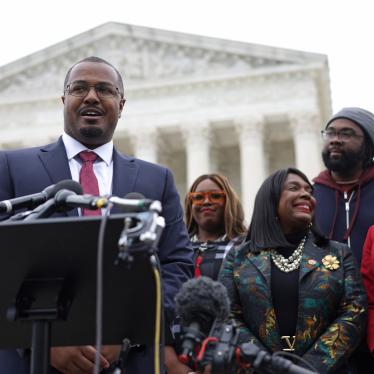On November 5, 2024, voters in the United States will cast their next ballots in a federal election that could have important implications for the US government’s ability to address ongoing human rights violations. But one year before voters head to the polls, voting rights in the US face daunting challenges.
The 2020 and 2022 elections showed how democratic institutions in the US are vulnerable to misinformation and disinformation on media platforms, intimidation of election officials, and election interference. Experts have raised concerns that these threats will likely reappear during the next national election. If officials do not act swiftly to address these challenges, as well as the increasing number of laws that make it harder for everyone to participate in the democratic process, voting rights in 2024 will be severely undermined.
According to the Brennan Center for Justice, at least 14 states have passed laws in 2023 that make voting more difficult. A federal court is currently hearing a challenge to SB1, a Texas law that narrows the right to vote by restricting absentee and mail-in voting and limiting voter assistance programs for older people and people with disabilities. North Carolina lawmakers recently passed election laws with several concerning provisions, including new barriers for voters who chose to participate in early voting.
Meanwhile, there have been other efforts in the right direction. In September, Congresswoman Terri Sewell (D-AL) reintroduced the John Lewis Voting Rights Advancement Act, which Human Rights Watch supports in 2023 and previously supported in 2021 and 2022. One of the bill’s key features is an updated “preclearance” provision that requires states and jurisdictions that have recently discriminated against voters to seek federal approval before changing election laws and maps. Preclearance was an essential protection of the 1965 Voting Rights Act, which the US Supreme Court overturned in 2013 through the case Shelby County v. Holder.
Congress should increase federal oversight of states that continue to discriminate against marginalized communities. This would bring the US in line with its obligations under international human rights law, preventing harm to voters in 2024 and beyond.









